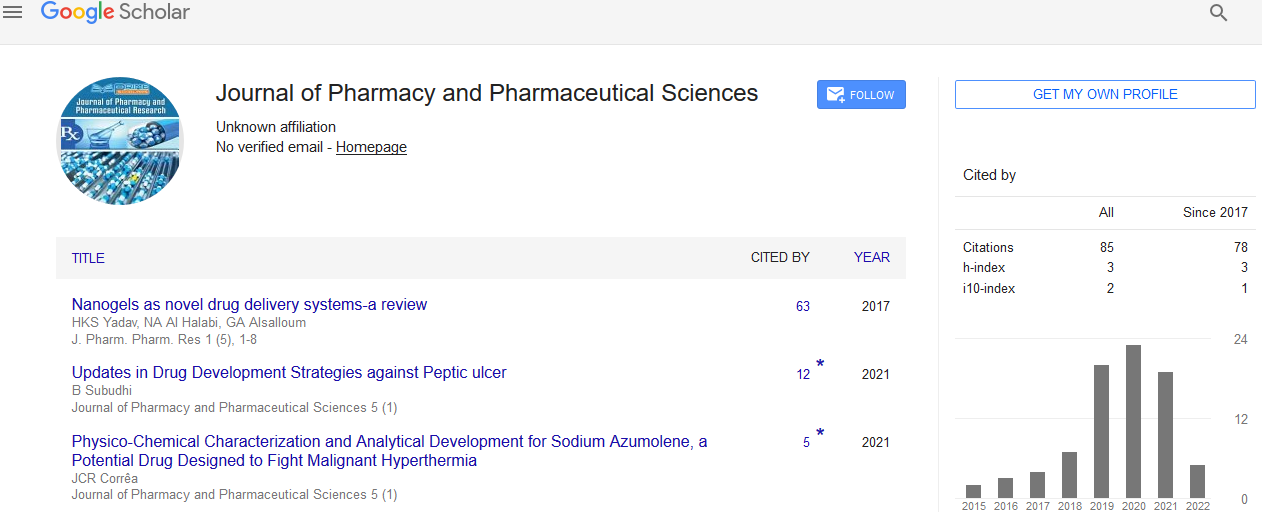Commentary - (2024) Volume 8, Issue 2
Unraveling the Mysteries of Biomedical Research: Pioneering Discoveries, Advancements, and Future Frontiers
James William*
Department of Pharmaceutical Research, Stanford University, USA
*Correspondence:
James William,
Department of Pharmaceutical Research, Stanford University,
USA,
Email:
Received: 29-May-2024, Manuscript No. IPIPR-24-19951;
Editor assigned: 31-May-2024, Pre QC No. IPIPR-24-19951 (PC);
Reviewed: 14-Jun-2024, QC No. IPIPR-24-19951;
Revised: 19-Jun-2024, Manuscript No. IPIPR-24-19951 (R);
Published:
26-Jun-2024, DOI: 10.21767/ipipr.8.02.016
Description
Biomedical research, the cornerstone of modern medicine,
encompasses a vast and diverse array of scientific disciplines,
methodologies, and innovations aimed at understanding,
preventing, and treating human diseases. From unravelling
the intricacies of molecular biology to translating scientific
discoveries into clinical applications, biomedical research drives
progress, fosters innovation, and transforms the landscape of
healthcare. In this article, we embark on a journey through
the realms of biomedical research, exploring its key principles,
methodologies, breakthroughs, and the promising frontiers
that lie ahead. At its core, biomedical research seeks to uncover
the underlying mechanisms of disease, elucidate the complex
interplay of genetic, environmental, and lifestyle factors,
and develop novel interventions to improve human health.
This interdisciplinary field encompasses a broad spectrum of
scientific disciplines, including molecular biology, genetics,
pharmacology, immunology, bioinformatics, and translational
medicine, among others. Biomedical research begins with the
formulation of testable hypotheses based on observations,
theoretical frameworks, or previous scientific evidence.
Hypothesis-driven inquiry serves as the foundation for designing
experiments, collecting data, and generating new knowledge.
Biomedical researchers adhere to rigorous experimental
design principles, ensuring the validity, reproducibility, and
reliability of study findings. This involves controlling variables,
minimizing bias, utilizing appropriate controls, and employing
statistical methods to analyse data and draw meaningful
conclusions. Ethical considerations are paramount in
biomedical research, with adherence to established guidelines,
regulations, and ethical principles governing the responsible
conduct of research involving human subjects, animal models,
or sensitive biological materials. Collaboration and knowledge
sharing are essential components of biomedical research,
fostering interdisciplinary collaboration, data sharing, and
dissemination of research findings within the scientific
community and beyond. Molecular biology techniques such
as polymerase chain reaction, gene sequencing, gene editing
(e.g., CRISPR-Cas9), and recombinant DNA technology enable
researchers to study the structure, function, and regulation
of genes and proteins implicated in disease pathogenesis.
Genomic and transcriptomic approaches, including genomewide
association studies, RNA sequencing, and single-cell
sequencing, provide insights into the genetic basis of disease,
gene expression patterns, and molecular signatures associated
with disease states. Advanced imaging modalities such as
magnetic resonance imaging, computed tomography, positron
emission tomography, and microscopy techniques enable
researchers to visualize and characterize anatomical structures,
cellular processes, and disease pathology in vivo and in vitro.
Pharmacological approaches involve screening compound
libraries, designing small molecules, and developing biologics
or targeted therapies to modulate disease targets, validate
drug candidates, and advance therapeutic interventions. The
sequencing of the human genome and advances in genomic
technologies have paved the way for precision medicine
approaches, personalized therapies, and targeted treatments
tailored to individual genetic profiles. Immunotherapy
strategies, including checkpoint inhibitors, chimeric antigen
receptor T-cell therapy, and monoclonal antibodies, have
revolutionized cancer treatment by harnessing the power of
the immune system to target and destroy cancer cells.
Acknowledgement
None.
Conflict Of Interest
The author declares there is no conflict of interest.
Citation: William J (2024) Unraveling the Mysteries of Biomedical Research: Pioneering Discoveries, Advancements, and Future Frontiers. J Pharm Pharm. 8:016.
Copyright: © 2024 William J. This is an open-access article distributed under the terms of the Creative Commons Attribution License, which permits unrestricted use, distribution, and reproduction in any medium, provided the original author and source are credited.

